Afghanistan War, Civil Liberties, Habeas Corpus, Human Rights, Iran, Iraq Veterans, Iraq War, Prosecution of the Bush Administration, Surveillance, Torture, Truth to Power
Podcast: Play in new window | Download
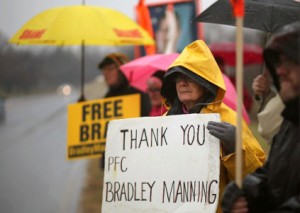
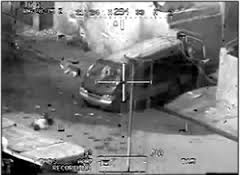
Michael Ratner: Bradley Manning Verdict Update
- I’ve been doing a lot of media on this lately, doing a lot of debates. I take a firm position. He should never have been tried in the first place.
- He’s a hero, he’s a whistle-blower. He publicly exposed the truths about the nature of this country particularly its human rights violations, its criminality and its corruption.
- That constitutes whistle-blowing and whistle-blowing is a legal defense to whatever kinds of crimes the United States wanted to try him. He shouldn’t have prosecuted at all.
- First we’ve all seen the collateral murder video. The killing of 2 Reuters journalists and I believe 10 civilians shot with a gung-ho blood lust.
- Those crimes were never really investigated, no one was prosecuted for them and yet it was cold-blooded murder taking place from an Apache helicopter on the streets of Baghdad.
- Think about what the Iraq war logs revealed. 20 thousand more civilians killed in Iraq then the U.S. said were killed.
- That fact alone caused the government of Iraq to not sign another Status of Forces agreement with the United States, because it would have given immunity to U.S. troops. Because there was no immunity for U.S. troops, the U.S. said we’re not staying in Iraq. Think about how important that is.
- Then there was a story last year taken from Wikileaks and Iraq war logs of torture centers run in Iraq in 2003-2004.
- The only reason we knew about that was because of Bradley Manning.
- That is a little example of what Bradley Manning has revealed to all of us of the criminality of our own country and information we ought to know and debate.
- The only reason we consider anything to be positive in this verdict is because Bradley Manning was so overcharged to begin with a ridiculous charge of aiding the enemy that was sustained by a judge with a motion to dismiss and let go til the end until she finally acquitted him of it – that we’re relieved that he wasn’t convicted of it.
- He was convicted of 20 charges. Six of them were espionage charges each of them carrying 10 years.
- Six of them were theft of government documents, each of them carrying 10 years.
- This is the first ever conviction of anyone in the United States who is a whistle-blower, who is a quote leaker for espionage. There is great fear being sown by Obama, Holder and others both in regard to whistle-blowers and to journalists.
Law and Disorder Co-host Attorney Michael Ratner, President Emeritus of the Center for Constitutional Rights (CCR), a non-profit human rights litigation organization based in New York City and president of the European Center for Constitutional and Human Rights (ECCHR) based in Berlin. Ratner and CCR are currently the attorneys in the United States for publishers Julian Assange and Wikileaks. He was co-counsel in representing the Guantanamo Bay detainees in the United States Supreme Court, where, in June 2004, the court decided his clients have the right to test the legality of their detentions in court. Ratner is also a past president of the National Lawyers Guild and the author of numerous books and articles, including the books The Trial of Donald Rumsfeld: A Prosecution by Book, Against War with Iraq and Guantanamo: What the World Should Know, as well as a textbook on international human rights.
———

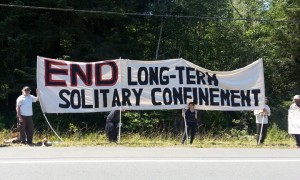
Pelican Bay Prison Hunger Strike
Last month, prisoners at Pelican Bay Prison went on another hunger strike to protest solitary confinement and security unit conditions. What does solitary confinement mean at Pelican Bay Prison? Well, prisoners spend 22 to 24 hours a day in a cramped, concrete windowless cell. The food is often rotten. Temperatures are extremely hot or cold. Within 15 days, these conditions can cause psychological damage.
Jules Lobel, who represents the prisoners at Pelican Bay in a lawsuit challenging long-term solitary confinement in California prisons says prisoners land in solitary confinement not for crimes they were convicted of, not for any rule violation or violent act while in prison, but based on the slimmest pretext of “affiliation” with a gang.
Attorney Jules Lobel:
- At any one time around the country there are about 80 thousand people that are in some form of solitary confinement.
- In California alone there are 4000. What makes California somewhat unusual is there are a large number of prisoners who’ve been in solitary confinement for over a decade and many over 20 years.
- In Pelican Bay Prison there are over 400 hundred who have been in solitary confinement for over ten years and about 80 for two decades.
- The conditions they’re place under are draconian.
- The cells my clients are in, there are no windows. People spend 20 years without seeing trees, birds, the grass.
- That’s unusual to have a whole prison without any windows.
- They put in thousands of people in solitary simply for gang affiliation. You don’t have to have committed any crime (disclipinary infraction) in prison.
- You get a birthday card from a member of a gang.
- There are things society will look back on, and say how could this have been done in a civilized society. We look back at slavery and segregation now and say that.
- They say that they will force feed only when the prisoner loses consciousness.
- These folks are on a no solid food hunger strike and they’ve been willing to take salt tablets, vitamins.
- We looked at the situation in California as I described and we also knew that 2 years ago hundreds of thousands of prisoners went on hunger strikes in California protesting this and were promised reforms that were never delivered.
- We decided that the time was right for a class action lawsuit.
- We brought the lawsuit in May 2012.
- We claim 2 things. To keep people in these conditions for over a decade is cruel and unusual punishment. It’s a violation of the Eighth Amendment.
- To keep someone in these conditions because they think they’re gang affiliated is disproportionate.
- The case only deals with one, and that’s the most notorious, and that’s Pelican Bay Prison.
- There are a thousand prisoners in solitary confinement at Pelican Bay.
- They deliberately place this prison where its 7 hours from any nearest major metropolitan area by car.
- It’s like a gulag there in that they don’t want any media exposure or attention being placed on them.
- It’s way more costly to put someone in solitary confinement. It’s a waste of tax payer resources.
Guest – Attorney Jules Lobel, has litigated important issues regarding the application of international law in the U.S. courts. In the late 1980’s, he advised the Nicaraguan government on the development of its first democratic constitution, and has also advised the Burundi government on constitutional law issues. Professor Lobel is editor of a text on civil rights litigation and of a collection of essays on the U.S. Constitution, A Less Than Perfect Union (Monthly Review Press, 1988). He is author of numerous articles on international law, foreign affairs, and the U.S. Constitution in publications including Yale Law Journal, Harvard International Law Journal, Cornell Law Review, and Virginia Law Review. He is a member of the American Society of International Law
—–
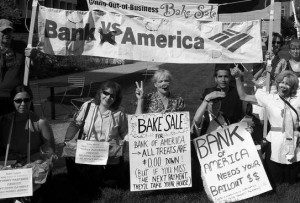
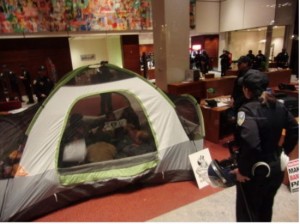
Who Will Bell The Cat? . . . Working People : Michael Zweig
2013 Left Forum Presentation by Michael Zweig is Professor of Economics at Stony Brook University and director of the Center for Study of Working Class Life. His most recent books are What’s Class Got to Do with It: American Society in the Twenty-first Century (Cornell University Press, 2004), and The Working Class Majority: America’s Best Kept Secret (Cornell University Press, 2000 – 2nd edition due December, 2011). In 2005-2006, he served as executive producer of Meeting Face to Face: the Iraq – U.S. Labor Solidarity Tour. He wrote, produced, and directed the DVD Why Are We in Afghanistan? in 2009.
————————————————————————–
CIA Sponsored Terror, Civil Liberties, Crony Capitalism, Guantanamo, Habeas Corpus, Human Rights, Military Tribunal, Political Prisoner, Prison Industry, Prosecution of the Bush Administration, Supreme Court, Surveillance, Targeting Muslims, Torture
Podcast: Play in new window | Download
Updates:
- Prisoner’s Hunger Strike: Pelican Bay Prison, Guantanamo Bay Prison, Palestinians In Israeli Prisons
- CCR Lawsuit – Pelican Bay Prisoner Class Action
- 20 Plus Palestinians On Hunger Strike In Israeli Prisons Demand Better Conditions For Pelican Bay Prisoners
- Federal Judge Gladys Kessler Says the President Is The One To Stop Force Feeding and Release Cleared Guantanamo Bay Detainees
- Bradley Manning Trial: Important Proceedings During Defense Case At Ft Meade, Maryland
—-
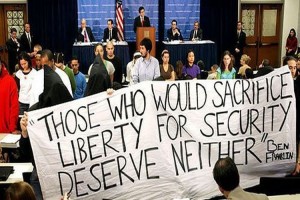

Secret Federal FISA Court Advocate of National Security State
Here on Law and Disorder we’ve discussed the process of the US government expanding its power to get wiretapping permission from the Foreign Intelligence Surveillance Court or FISA court. This is under a provision called section 215 of the Patriot Act which if listeners might recall was set to expire in 2009. It did not. We discussed how the FISA court will be accessed by what’s called Lone Wolf Authority or National Security Letter Authority whereby the FBI can write a letter to the court without suspicion of terrorism and get bank, telephone and internet records.
The 11-member FISA Court has been central to allowing a massive surveillance state to exist by granting US agencies such as the NSA access to private telecommunication data. Today, the FISA court essentially operates as an advocate for the national security state. It’s judicial oversight now parallels the Supreme Court. But more troubling, these FISA Court Justices operate in complete secrecy and base their decisions from hearing only one side the argument, the US government’s.
Attorney Scott Horton:
- The Nixon Administration attempted to use “intelligence gathering” as a justification. Congress reacted to that by saying we’re not going to agree that the government has the right to wiretap people in the United States on the grounds of intelligence gathering. We’re going to require this judicial check, so Congress created this special court the FISA court.
- The court has been around for a long time, but its become a far more significant entity doing much more work after 9/11.
- It has 11 judges. The judges are selected by the Chief Justice of the Supreme Court, John Roberts.
- The judges are picked from courts all around the country.
- It’s not a secret court in that we know that it exists. It IS a secret court in that it operates in secret.
- Literally, the public doesn’t know what papers are filed with it and doesn’t know about its decision.
- That’s a highly controversial matter because decisions by federal courts constitute law.
- This means that this court is manufacturing secret law that the people don’t know about.
- We don’t know the jurisprudence of this court, we don’t know its decisions, we don’t know the full rationale for all its decisions because most of them have been secret.
- It is very aggressively expanding the power and authority of the NSA in surveillance areas.
- This is a court picked by Roberts who share his attitude. Out of 11 judges we have 10 Republican appointees. It’s very well known that Roberts in making appointments here looks very closely to select only judges who reflect his attitudes about the national security state.
- It is a cherry picked court. A movement conservative perspective which is quite hostile to civil liberties.
- The court has become an advocate for national intelligence services.
- It really puts the whole institution of the court under a cloud right now.
- If you want to disperse that cloud you would make sure those judges are representatives of the country.
- The legal reasoning and interpretation of statutes that should be there for people to see and know and understand and criticize.
- Telecoms: Here they are service providers dealing with consumers, lying to their clients and allowing the government free access to all this information.
- That is a criminal act under various statutes of states including New Jersey and Maine. That have rules that say they may not allow governments, investigators access to this information other than pursuant to a government subpoena or court order.
- This court is sweeping away core rights and making a joke out of the 4th Amendment.
- Whistle-blower damage control strategy: A program to deflect attention from the disclosures themselves.
- There is a move afoot to take this out on the American service providers who cooperate with the NSA, Verizon, AT&T. . .Google and so forth.
Guest – Scott Horton, human rights lawyer and contributing editor to Harper’s Magazine. Scott’s column – No Comment. He graduated Texas Law School in Austin with a JD and was a partner in a large New York law firm, Patterson Belknap Webb & Tyler.
—-


Left Forum 2013: Ron Reosti
Capitalists are not necessary to run firms, nor to run macro-economies and investment says Ron Reosti in his presentation at the Left Forum Panel titled Imagine Living In A Socialist USA, Part 2: Making The American Socialist Revolution.
Speaker – Ron Reosti, his Italian parents imparted to him a working-class identity, a sense of social justice, a belief in the possibility of social change, a commitment to democracy, and a hatred of the undemocratic ruling class. He embraced socialism in his early teens, during the McCarthy era, and has remained committed to that vision. He practices law and is part of the radical community in Detroit.
———————————————-
CIA Sponsored Terror, Civil Liberties, Criminalizing Dissent, FBI Intrusion, Habeas Corpus, Human Rights, Military Tribunal, Political Prisoner, Prison Industry, Prosecution of the Bush Administration, Surveillance, Targeting Muslims, Torture, Truth to Power, War Resister
Podcast: Play in new window | Download
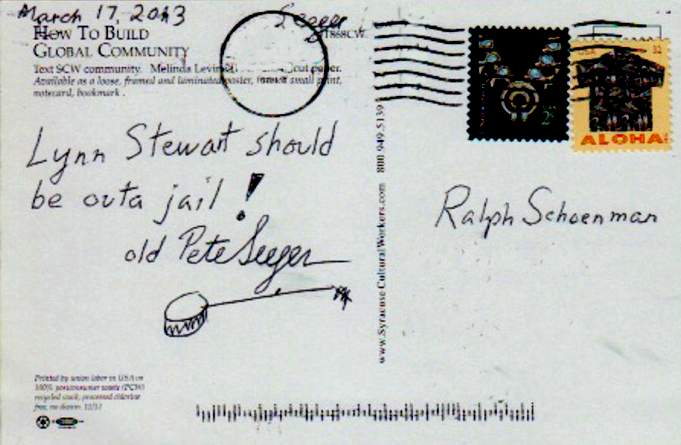
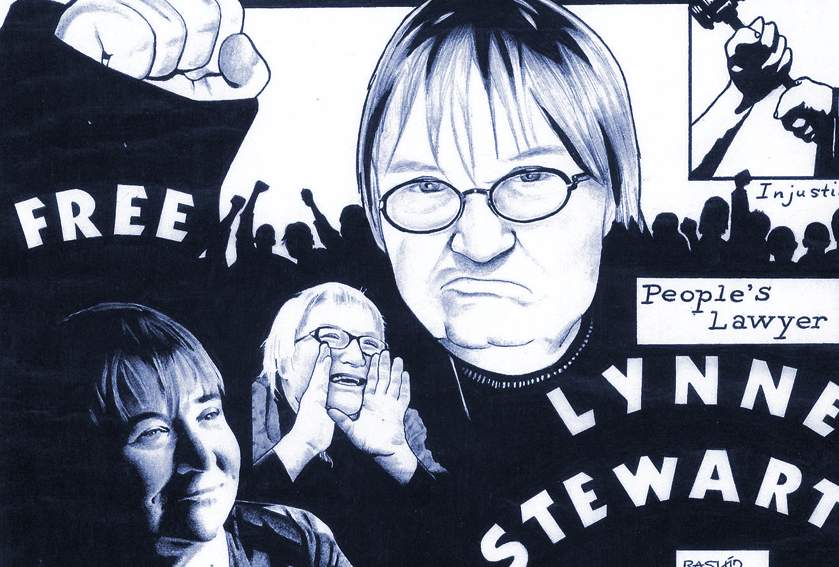
Please Sign Petition To Help Lynne Stewart
Long time literary agent Francis Goldin has for years visited inmates on death row. She’s recently returned from visiting Lynne Stewart in the Carswell Medical Facility in Texas. She joins hosts to talk about her visit.
Francis Goldin:
- We were there for 4 days and most of the time we were in the prison with her.
- If we kissed more than once, or hugged more than once she would be fined.
- That’s how they become correctional by denying kissing and hugging and loving.
- We were only there for about 70 hours, we didn’t have enough time to talk.
- The day we left, all the plans were changed, no more 4 day visits, only Saturday and Sunday. The inmates were heart broken.
- The breast cancer has moved to her lungs. The reason she has it in her lungs is because they didn’t treat her when they should have.
- It’s tremendously important to go to LynneStewart.org and sign on for this release.
- When you sign on, email every person on your list whether its 10 or 500.
- It’s really important that we send a million signatures.
- I visited Maroon for 27 years, every 3 months. I was there for 2 whole days.
- Lynne Stewart Compassionate Release Petition
- Please Also Write to: Charles E Samuels Jr. / Federal Bureau of Prisons /
- 320 1st Street Northwest / Washington DC 20534
Guest – Francis Goldin, has worked in publishing for 63 years, as an agent and as editor-in-chief of a children’s publishing company; she founded the Frances Goldin Literary Agency and sold her first book in 1977. Authored by Black anthropologist Betty Lou Valentine and titled Hustling and Other Hard Work, the book continued to receive royalties for 32 years. Among her clients are Barbara Kingsolver, who she has represented for all of her 14 books, Mumia Abu-Jamal, Dorothy Allison, Frances Fox Piven, Martin Duberman, iconic feminists including Charlotte Bunch and Esther Newton, more.
——–
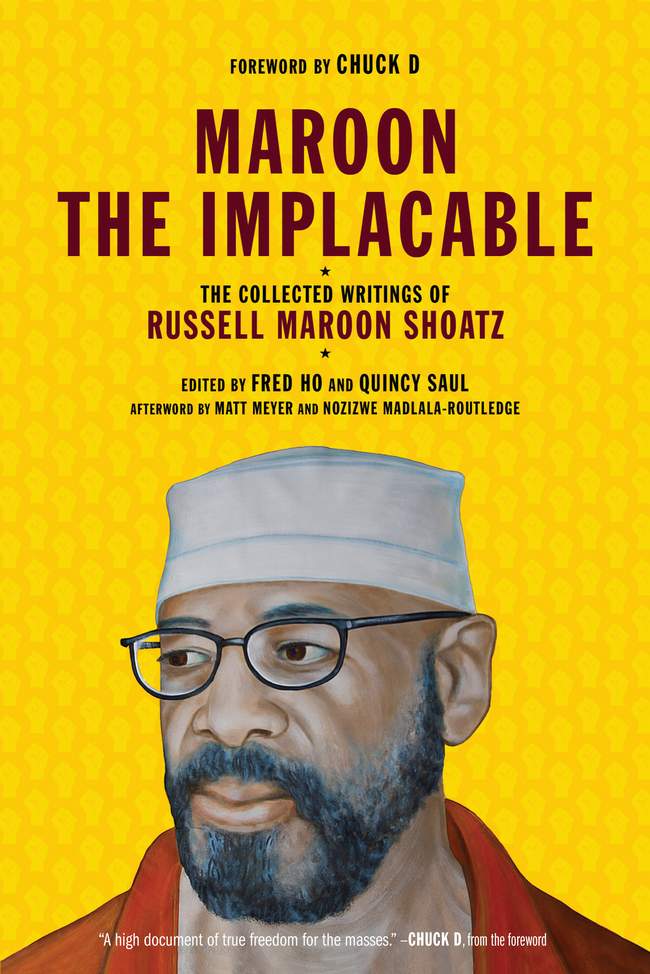
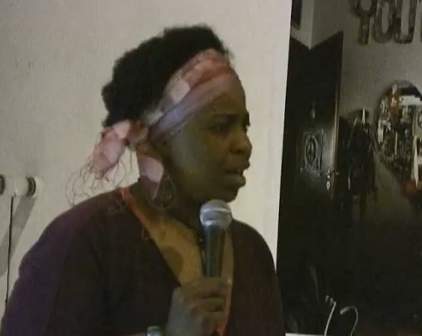
Maroon The Implacable
We welcome back Teresa Shoatz, daughter of political prisoner Russell Maroon Shoatz who has spent 39 years in the US prison system. As many listeners may know, Russell Shoatz has been held under intense lock down spending no more than one hour a day outside of his cell for the past 21 of those years. He was locked up in 1972 for his activity as a member of the Black Liberation Army.
Meanwhile, Theresa Shoatz is on book tour promoting her father’s book titled Maroon The Implacable. We catch up with her in Chicago while on tour. Maroon The Implacable is the first published collection of his accumulated written works analyzing the prison system, imperialism, the drug war. He also writes with great insight about the Maroon communities throughout America. Newer essays examine current political movements including eco-feminism and matriarchy
Theresa Shoatz:
- Maroon had been told that he would die at SCI Greene. For him to be free from prison in general, would be when I would say we have won.
- We’ve been fortunate to have Bret Grote, assistant to the legal team. Dan Kovalic and we just got a major commitment from a big law firm.
- Maroon has been writing since the eighties. In the nineties, some anarchists took his writings and put them in a zine, and took them throughout the United States and into Canada. They were used for education.
- So you get Maroon’s span from the eighties, to the present day.
- His view now on women is so incredible because he stressed how important women are to the movement throughout the sixties and the seventies.
- At that time he didn’t recognize how important the women were. The women, I would say are really the back bone of any community.
- On his second escape we was returned to prison an inmate said to him, they had a hell of a manhunt on you, you were chased down like a “Maroon.”
- He didn’t know anything about the Maroons. He dug in deep about their history and how they came about.
- The Maroons were slaves who had escaped from plantations, some went deep into the woods and joined with Native Americans and some poor whites who were totally against this slave thing.
- His digging into the history of the Maroons, he also involved me and my siblings. They were so awesome because they were fighting off attacks, also in the Caribbean areas, even into Mexico.
- Maroon has endured such torture, just outrageous treatment. Twenty plus years of no-contact visits. The impact of this really does control mindsets.
- Maroon doesn’t have computers nor has he seen one up close. He does everything long hand, and through snail-mail.
- Right now, I’m at the University of Texas. I’m presently with the dean and a professor in a writing class.
- If they haven’t heard of him, they want to know more.
- We have to step over what this government has thrown at us.
- They have more a hand on these youth than some these youths own parents.
- When you can punch right through that wall that’s candy coated reality system that our youth are mixed up in, its not only uplifting for me but for them.
Guest – Theresa Shoatz, a Philadelphia-based prison justice activist and the daughter of Russell “Maroon” Shoatz.
——-


Shadow Lives: How the War on Terror in England Became a War on Women and Children
It’s obvious and yet an unfortunate reality, war, prisoners of war and the prison industrial complex tear apart families. Very seldom are the voices of family members heard that were left behind by the tragedies of war. In the book Shadow Lives: How the War on Terror in England Became a War on Women and Children, author Victoria Brittain brings the reader close to these individuals who’s lives were capsized by war. They’re usually socially invisible and their civil liberties are often trampled by the state under the guise of the “war on terror.”
Victoria Brittain:
- I got involved way back when people began disappearing and they were described as the worst of the worst by Donald Rumsfeld and George Bush. Some of those people came from Britain and we didn’t know anything about them.
- A friend of mine had a project to do verbatim plays about the families, and he asked me to be the person to interview the families to try to find out who these people were and what had brought them together in Guantanamo Bay.
- I find complete confusion. Nobody in the families knew anything about why their son or their brother had ended up in Guantanamo Bay. In the course of that I got to know some of the families.
- I was particularly curious about one family that didn’ t want to cooperate in the play which was a Palestinian woman with five children, living alone and not speaking much English.
- I wrote to her about the play and told her how ashamed I was of my country from the research that I’ve done.
- We became close friends. Through her and her children, I met other women.
- Over these past ten years its been a rich experience, and sobering experience about injustice.
- I think she was suppressing the agony and loneliness and fear that she was in, course she was so desperate to have her children approach something of a normal life.
- It was only when other people began to come back to Britain from Guantanamo, that we began to get a picture the conditions in which people were.
- Her husband had gone off to west Africa with 3 or 4 other men to try and start a peanut business. This was his idea as a refugee Palestinian in Britain. He wanted to find a way of making a life for his family.
- When she found out he was taken from Afghanistan to Guantanamo, she was completely, . . there was no explanation.
- There was absolutely no recourse for her for a long time.
- It’s so sad, the Obama administration, he said he was going to close Guantanamo, here we are years down the road, these innocent people are still there and in the last 3 months, these people have become so desperate, because Congress is blocking them from getting out.
- Again and again, every legal victory from CCR has been overturned by a higher court.
- For these men, they really feel they’re at the end of the road.
- The horror of this has been so well laid out by so many lawyers. I find it astounding that there isn’t an uproar in Congress.
- Thank goodness Sami-Al-Arien is no longer in prison, but he’s under house arrest.
- Most of their friends turned away from them.
- He spent about five years in about a dozen maximum security prisons.
- FreeSamiAlArian
- The British and American intelligences work so closely together.
Guest – Victoria Brittain has lived and worked as a journalist in Washington, Nairobi, Saigon and London. She worked at the Guardian for 20 years and is the author of Death of Dignity: Angola’s Civil War, and Enemy Combatant.
———————————————————————————
CIA Sponsored Terror, Civil Liberties, Criminalizing Dissent, Extraordinary Rendition, Habeas Corpus, Human Rights, Political Prisoner, Prison Industry, Prosecution of the Bush Administration, Supreme Court, Targeting Muslims, Torture, War Resister
Podcast: Play in new window | Download
Updates:
- Please Sign the Lynne Stewart Compassionate Release Petition
- Please Also Write to: Charles E Samuels Jr. / Federal Bureau of Prisons /
- 320 1st Street Northwest / Washington DC 20534
- Anniversary of Collateral Damage Video Release
- University Stadium Victory – GeoCorp Prisons
—
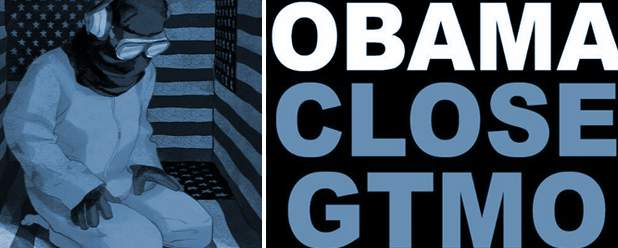
Guantanamo Hunger Strike Update
Attorney Omar Farah speaks with Michael Ratner about a hunger strike at Guantanamo Bay Prison with more than half of prisoners from Camp 5 and 6f participating. Farah says the hunger strike was triggered by an arbitrary crackdown by the prison administration including cell searches and a search of the prisoner’s Qurans. This is viewed as out right desecration. More than half of the entire prison population has been cleared for release by every prominent national security and law enforcement agency in the US government, that includes the DOD, DHS.
Guest – Omar Farah joined the Center for Constitutional Rights in 2012 as a staff attorney in the Guantanamo Global Justice Initiative. Omar was previously in private practice, working mostly in the area of international commercial arbitration. Since 2008, he has represented several prisoners detained at Guantanamo Bay in habeas corpus litigation in federal court.
———
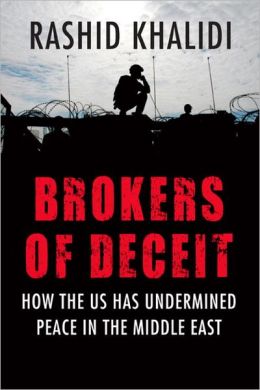

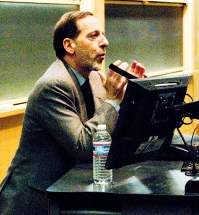
Brokers of Deceit: How the U.S. Has Undermined Peace in the Middle East
While adviser to the Madrid and Washington Palestinian-Israeli negotiations, author and historian Rashid Khalidi collected documents, memos and meeting minutes as a research foundation for his recently published book Brokers of Deceit: How the U.S. Has Undermined Peace in the Middle East. The book focuses on 3 periods of opportunity for the United States to broker peace, one in the late seventies, the early nineties and 2010. This critical analysis addresses the basic distortions in language that has corrupted the peace processes. Rashid Khalidi is an American historian of the Middle East, the Edward Said Professor of Modern Arab Studies at Columbia University, and director of the Middle East Institute of Columbia’s School of International and Public Affairs, he joins us today to talk about his book and also the ongoing destabilizing hostility in Syria.
Professor Rashid Khalidi:
- Let me read to you what Orwell says, “the slovenliness of our language makes it easier for us to have foolish thoughts. If thought corrupts language, language can also corrupt thought. Bad usage can spread by tradition and imitation even by people who should and do know better.”
- The argument I’m making in this book is much of the language used by pundits and politicians about the Middle East and the so called peace process, between the Palestinians and the Israelis is really corrupt language.
- One of the chapters in the book is devoted to the period when I was an adviser to the Palestinian delegation and negotiations from 1991-1993 starting in Madrid and continuing to Washington.
- If you go back to Madrid in October 1991, there were under 200 thousand Israelis living in the occupied West Bank and occupied East Jerusalem. Today, there are nearly 600 thousand of them.
- United States has been responsible for exacerbating the problem in effect by saying the only way to deal with this issue of occupation and settlement is through negotiations mediated by us.
- The United States in the meantime has put its big thumb on the scale in favor of the Israelis preventing a resolution of the problems.
- The first episode I talk about in the book has to do with the follow on to Camp David in the wake of the Lebanon War in 1982 when Israel invaded and 50 thousand Palestinians and Lebanese were killed and wounded.
- I site at great length a now declassified document by a CIA analyst which one of my students actually found.
- The idea of Palestinian self determination doesn’t exist anywhere in the Oslo Accords signed by the PLO and Israel in 1993 and afterward.
- Autonomy and self determination are used by people in American political parlance and Israeli political parlance in ways that do violence to the real meanings of these words.
- Obama fits the pattern of every president since President Carter, with the sole exception of George W. Bush.
- Obama has adopted wholesale and entire Israeli narrative as to the idea that Israel is the victim.
- There is a people in existential danger that’s the Palestinians, the people faced with elimination, extermination, not physically but as a collective.
- Oslo was a terrible deal for the Palestinians. As a result of Palestinian failures since the 90s, a situation has emerged where we have one state and one sovereign body between the Mediterranean and the Jordan River.
Guest – Professor Rashid Khalidi, is the Edward Said Professor of Arab Studies at Columbia University. He received his B.A. from Yale University in 1970, and his D.Phil. from Oxford in 1974. He is editor of the Journal of Palestine Studies, and was President of the Middle East Studies Association, and an advisor to the Palestinian delegation to the Madrid and Washington Arab-Israeli peace negotiations from October 1991 until June 1993.
—–
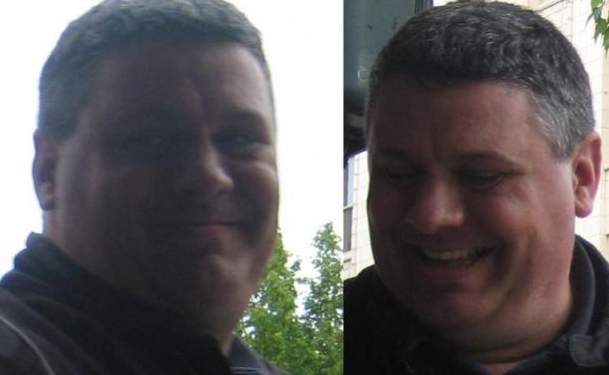
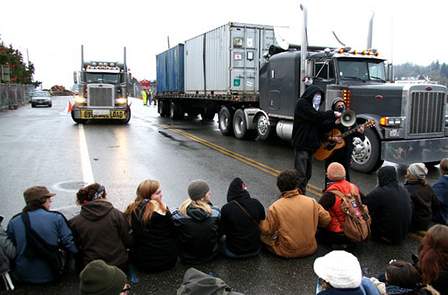
Judge Oks Civilians Right to Sue Military For Spying On Peace Activists
In a recent ruling, the Ninth Circuit Court of Appeals ruled that a lawyer’s challenge to military spying on peace activists can proceed. This ruling is the first time a court allowed civilians to sue the military for violating their First and Fourth Amendment rights. National Lawyers Guild attorney Larry Hildes brought the lawsuit Panagacos v Towery in 2009 on behalf of a group of Washington state antiwar activists who discovered they were infiltrated for 2 years by John Towery, an employee at a fusion center inside a local Army base. The antiwar activists group Port Militarization Resistance sought to oppose the wars in Iraq and Afghanistan through civil disobedience. The lawsuit also names, the Army, Navy, Air Force, FBI, CIA, Department of Homeland Security and other law enforcement agencies.
Attorney Larry Hildes:
- Brendan Dunn was activist in Olympia, he was arrested in Seattle basically for sitting while anarchist.
- The Olympia Police Department cracked down on the Wobblies and the IWW for having newspaper boxes for which they paid for and took all the papers.
- We got them back, but Brendan got curious about what was going on, did a state public records act request for all emails and all intelligence to the city of Olympia concerning anarchists or the IWW.
- What he got back instead was hundreds and hundreds of pages of what are called “force protection memos” and “threat assessments” from Ft. Lewis about Port Militarization Resistance, a group that he was involved with that did protest against the use of public ports for shipment of Striker Brigade equipment to the occupation in Iraq and Afghanistan.
- He started looking at them and every police department and every military agency from north of Seattle to Portland was on this list. The FBI was on this list, Homeland Security, every branch of the military.
- It was detailed discussions of what PMR was planning, what they were going to do, how to fight it. The author of a lot of this was John Towery.
- PMR looked Towery up on Facebook and there’s a picture on Towery’s FB page of John Jacob who had been coming to PMR meetings for several years. Very closely involved with PMR in fact he ran their list serve on Rise Up.
- So they did some more checking. They looked up his voter registration, they got an address and the address matched John Jacobs.
- He was 20 years older than everyone else. I don’t know how but he blended in. He went to events, he brought his kids. He was very very good at what he did.
- Brendan considered him a close friend. Brendan and another member confronted him at a cafe in Tacoma and he said “yes, I’ve been spying on you. I’m doing it for your own good, there are other spies watching you that mean you much more harm than I do.”
- We do know that the Army at least one more spy. We caught the Coast Guard spy. There were 2 officers from the Tacoma Police Department’s Homeland Security Committee.
- The police would show up at unannounced demonstrations. The MP’s, local police and state patrols would already be there and everyone would be arrested as they were getting out of their cars.
- The Portland Militarization Resistance was a few dozen people. They were very creative, they had figured out a choke point for the military.
- The equipment would go out 3 weeks before the troops. If they couldn’t get the equipment there. They couldn’t send the troops.
- If they couldn’t send the equipment and the troops then no war.
- The succeeded in scaring the heck out of the military by these very peaceful acts of civil disobediance.
- They can’t arrest them before they get to the demonstration or before they even do anything.
- They think dissent against their wars is the enemy which scares me a great deal.
- Where else are they doing this, how much are they doing this?
Guest – Attorney Larry Hildes, an NLG member and one of the attorneys involved in bringing the case Panagacos v Towery.
————————————————————————–
Civil Liberties, Habeas Corpus, Human Rights, Prosecution of the Bush Administration, Targeting Muslims, Torture, Truth to Power, War Resister
Podcast: Play in new window | Download
Updates:
- Supreme Court Decision on Qualified Immunity: Dick Cheney
- NYPD Turned Young Man Into Informant: Mosque Crawler
—–
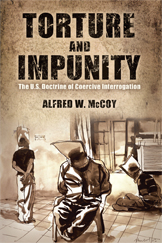
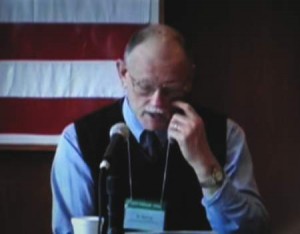
Torture and Impunity: The U.S. Doctrine of Coercive Interrogation
It’s an undisputed fact: both the George W. Bush and Obama administrations actively engaged in various methods of torture, and have done so with impunity. Despite initial public outrage at graphic images from the bowels of Abu Graib and Guantanamo prisons, government-sponsored torture has, on one level, come to be accepted as integral in the several perpetual wars waged by the United States. References to torture are now commonplace, sprinkled throughout the mainstream media and in popular culture references. Even discussion of different forms of torture has, in ways, become abstract.
We’ve reported, for example, that Cornell University Medical Center scientists have deemed so-called “forced standing” the most devastating mode of torture. Standing motionless for hours can shut down the kidneys, cause hallucinations and wreak much more damage.
And we’ve looked at numerous cases in which the perpetrators of US-sponsored terror have gone unpunished. In one case, while Italy’s high court upheld sentences of 23 CIA operatives convicted of kidnapping a Muslim cleric under the US program of “extraordinary rendition, more than 10 years later, the commanders who authorized the torture yet to face charges. This country’s practice of torture have become virtually sanitized, and in the process, does lasting damage to America’s moral authority as a world leader.
Professor Al McCoy:
- In the 1950s, the human mind was like the last continent to be discovered.
- People in Washington, the CIA were concerned that Russia was capable of programming people to do things against their will.
- Initially defensively and very quickly offensively the CIA led the US intelligence community, the British and Canadians on a massive search that lasted 12 years for sophisticated mind control techniques.
- It went through an exotic phase where they explored hypnosis and very famously almost notoriously drugs, that led to dead ends.
- They outsourced the mundane research to top ranking cognitive scientists. This produced two breakthroughs.
- One is sensory deprivation, second is stress positions.
- These two techniques self afflicted pain and sensory disorientation were combined in the CIA’s counter intelligence and interrogation manual in 1963.
- It was disseminated withing the US intelligence community and then through a bunch of CIA blinds then to international police training to US allies worldwide . . .leading to a global proliferation of torture on our side of the Iron Curtain.
- The UN Convention barred with equal weight the physical and psychological torture.
- We illegally took people and seized them, transferred them to allied nations where they would be likely to be subjected to torture.
- One of the favorite blinds of the CIA was the office of Naval Research.
- President Bush authorized the CIA to open up its own prisons, lease its own fleet of executive jets in order to move them around from prison to prison.
- Torture became normalized for the American people. Torture became omnipresent on screens large and small across America.
- The show 24 became enormously popular with 15-20 million views per episode. We’ve had torture normalized within the mass media.
- This process of impunity is really a transnational process.
- Rewriting history so that the fabric of the past is radically reconstructed to justify the use of torture.
Guest – Al McCoy, Professor of History at the University of Wisconsin-Madison and author of “Torture and Impunity: The U.S. Doctrine of Coercive Interrogation.” Al is also the author of “A Question of Torture: CIA Interrogation, From the Cold War to the War on Terror” and “The Politics of Heroin: CIA Complicity in the Global Drug Trade. The first edition of his book, published in 1972 as The Politics of Heroin in Southeast Asia, sparked controversy, but is now regarded as the “classic work” about Asian drug trafficking.
—
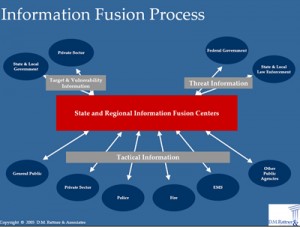

ACLU: When Boston Police Spy on Free Speech, Democracy Suffers
The Massachusetts National Lawyers Guild, along with the ACLU, recently issued a report detailing how the Boston Police Department has worked with its local fusion center to spy on lawful activities. The Center was established in the wake of 9/11 to more effectively share “terrorism-related” information among federal, state and local law enforcement agencies as well as with private entities.
Public police records, including documents and videotapes, obtained with a court order reveal a pattern of police surveillance of peaceful demonstrations, coupled with the practice of interrogating activists and labeling peaceful groups as extremists. Local groups and activists have long suspected that spying was taking place.
Urszula Masny-Latos:
- We know that various law enforcement agencies monitor peaceful activists.
- Even though COINTELL PRO ended in the 70s, we know that law enforcement agencies have continued spying.
- In 2009 when Israel attacked Gaza, there were many protests in Boston, one of those protests happened at the Israeli consulate.
- Four activists were arrested and the NLG represented them and eventually charges were dropped.
- While in jail the activists were interviewed by plain clothes officers.
- One of the activists was threatened because she refused to answer questions.
- Four BRIC officers interviewed those activists. BRIC (Boston Regional Intelligence Center) is one of two fusion centers we have in Massachussetts.
- We know that BRIC is not supposed to gather information or evidence from activists or anyone else.
- The Boston Police Department says BRIC officers only said they were available to talk with.
- Not only in Boston, people have to be very aware of it, fusion centers have been put in all states.
Guest – Urszula Masny-Latos, Executive Director of the Massachusetts National Lawyers Guild since 1996. She grew up in Poland, where she was active in the student movement. After moving to the U.S., she attended University of California at Santa Cruz where she majored in sociology and legal studies; her graduate work in arts management was done at the New School for Social Research in New York City. Prior to her Guild employment, Urszula organized arts festivals, managed a theater company, and worked as an organizer for a union in Boston.
——————————————————————-
Afghanistan War, CIA Sponsored Terror, Civil Liberties, Criminalizing Dissent, Extraordinary Rendition, FBI Intrusion, Guantanamo, Habeas Corpus, Human Rights, Political Prisoner, Prison Industry, Prosecution of the Bush Administration, Supreme Court, Targeting Muslims, Torture
Podcast: Play in new window | Download
Updates:
——
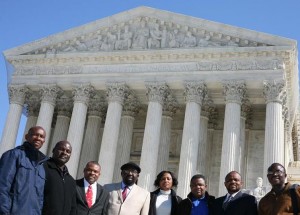
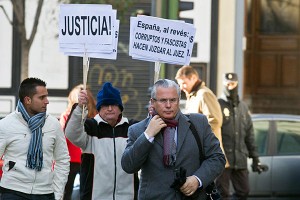
Universal Jurisdiction: Kiobel v. Royal Dutch Shell / Bush 6 Case In Spain
This week the US Supreme Court will decide if corporations could be held liable in U.S. courts for violations of international human rights law in the land mark case Kiobel v. Royal Dutch Petroleum. The case was brought by families of seven Nigerians who were executed by a former military government for protesting Shell’s exploration and development and is pushing to hold corporations accountable for human rights violations. The Supreme Court will also consider how the Alien Tort Statute Claim can be used the Kiobel case. A one sentence law that goes back to 1789 when the first judiciary act was brought in the United States. We’ve discussed this statute with several past guests including attorneys Peter Weiss and Rhonda Copeland who were instrumental in beginning the first cases in which human rights violations, taking place in other countries could actually be litigated in the United States.
We also discuss the recent amicus filing by a group of international human rights organizations and experts before the Spanish Supreme Court. The brief asks the Spanish Supreme Court to overturn a decision not to pursue a criminal case against six former officials from the Bush administration for their role in directing and implementing a systematic torture program. Past shows with Katherine Gallagher.
Attorney Katherine Gallagher:
- The Kiobel case has been in US courts since 2004.
- The claims were brought in the Southern District of New York, under a law from 1789, known as the Alien Tort Statute.
- This law allows non-US citizens to come into a US federal court and assert violations of the Laws of Nations or International Law.
- A recent precedence for this is Citizens United, what happened was that the Second Circuit ruled that corporations could not be held liable for these egregious human rights violations under the Alien Tort Statute.
- The question of corporate liability went up to the Supreme Court first.
- We had 2 judges from a 3 bunch panel in the Second Circuit suddenly come out in the fall of 2009 and say there is no corporate liability. That is the question that went up to the Supreme Court.
- Four other circuits had look at this question and they said of course corporations can be held as liable as an individual, a natural person.
- The Alien Tort Statute allows for a civil suit and civil liability rather than criminal liability.
- The key case from 1980 that CCR brought, the case of Filartiga, this case which the Supreme Court affirmed in 2004 as being on solid legal basis, claims by a Paraguayan, against a Paraguayan for actions that occurred in Paraguay.
- So its very strange that the Supreme Court was asking in a very broad fashion whether the ATS could apply to actions that occurred in another country. That is what the bulk of the cases brought under the ATS have been about.
- Some of the cases where the ATS is used are for some of the most serious violations. Cases of war crimes, crimes against humanity, torture, not your run of the mill case.
- What the justices seem to coalesce around was the issue of whether there’s an alternate forum. If the claims against Shell could have been brought in the UK or in the Netherlands, maybe they don’t need to be brought in the US.
- We’ve seen a trend in the last 20 years of other countries adopting stronger laws that allow for redress, and accountability, so we don’t have to be the world’s policeman.
- There have been 2 cases that percolated up in the last 4 years in Spain.
- The first is a widespread investigation of the torture program then Judge Balthazar Garzon. This is a case looking at torture in Guantanamo, and potentially in Iraq and Afghanistan, looking at the whole U.S. torture program. That case was brought on by 4 named plaintiffs.
- That case is very wide ranging, and willing to go up the chain of command as far as the evidence leads.
- There is a second case that was brought against specific U.S. individuals. They’re known as the Bush 6, including, Jay Bybee, John Yu, David Addington, Alberto Gonzalez. Six men who served as lawyers and argued to have essentially created both the legal structure that enabled the torture program, providing arguements for immunity and protecting participants of the torture program from accountability.
- Spain has a long and proud history of upholding International Law. Spain is where we had the case against Augusto Pinochet in the late 90s.
- We’ll be doing this as long as we need. We need to have accountability, its really critical.
Guest – Katherine Gallagher, Senior Staff Attorney at the Center for Constitutional Rights (CCR), where she focuses on holding individuals, including US and foreign government officials, and corporations, including private military contractors, accountable for serious human rights violations. Among the cases she has worked, or is working, on are international accountability efforts for U.S. officials involved in torture (Spain, Switzerland, Canada); ICC Vatican Officials Prosecution; Arar v. Ashcroft, Corrie v. Caterpillar, Matar v. Dichter, Saleh v. Titan, Al-Quraishi v. Nakhla and L-3, Estate of Atban v. Blackwater.
—————————————————————————————————



























